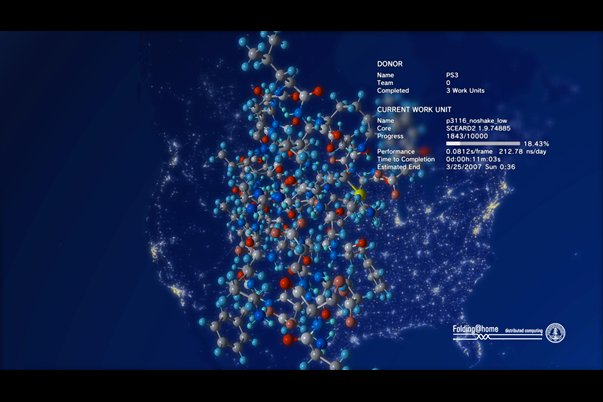Folding@home reaches "petaflop" milestone
And that's really, really big...
Sony Computer Entertainment sends word that partly thanks to the PlayStation 3, Folding@home - Stanford University's distributed computing project - has reached a petaflop - a milestone never before reached on a distributed computing network.
A petaflop, in case you don't keep a mathematical dictionary beside your desk, is the ability of a computer to do one quadrillion floating point operations per second (FLOPS). In other words, says SCE, "if every person on the planet were to perform a simple mathematical calculation, such as calculating a percentage, each person would have to perform 75,000 calculations every second for the world's population to achieve a petaflop." We said "whoa".

By achieving a petaflop, Sony says that scientists with the Folding@home program are now able to conduct research that typically would not be possible for 10 years down the line, such as greater progress in studies of protein folding and its link to diseases such as Alzheimer's.
"The recent inclusion of PS3 as part of the Folding@home program has afforded our research group with computing power that goes far beyond what we initially hoped," said Vijay Pande, Associate Professor of Chemistry at Stanford University. "Thanks to PS3, we are now essentially able to fast-forward several aspects of our research by a decade, which will greatly help us make more discoveries and advancements in our studies of several different diseases."
Since it joined PS3 On March 15, close to 600,000 unique users have registered to the Folding@home network. Well done guys; it makes all that gaming feel a bit more worthwhile, doesn't it?
Weekly digests, tales from the communities you love, and more


